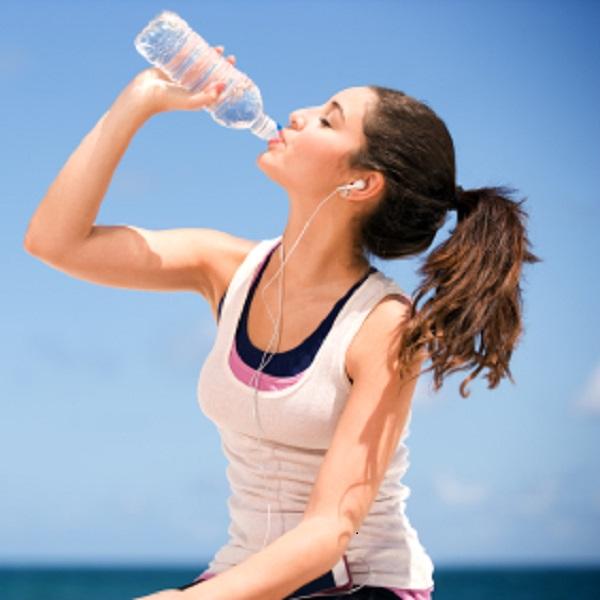Keep the Water Flowing! Importance of Hydration During Exercise and Weight Loss

What's annoying Jerry Seinfeld now? People telling him to hydrate. The joke got a lot of laughs during Seinfeld's recent appearance on The Late Show With David Letterman, but as our Get There Blog contributer Eric Buck tells us hydration really isn't a laughing matter.
Authored By Erik Buck, MBA, ATC, Certified Athletic Trainer at ATI Physical Therapy and Lincoln-Way Central High School in New Lenox, IL
When exercising to lose or regulate weight, being properly hydrated is essential in reaching desired outcomes for weight loss. Although it sounds simple and obvious, the majority of the general active population fails to drink enough water to replenish the body, which itself is constructed of nearly two-thirds water! So as our bodies excrete water through perspiration during exercise, why is it so important that we actually follow the direct and repetitive reminder to “HYDRATE!”
- Our bodies rely heavily on water as a fuel to perform several necessary body functions including temperature regulation, removal of waste, aiding in controlling metabolism, and lubricating joints, just to name a few.
- Dehydration from water loss harms bodily function and causes adverse physical and mental impairments which lead to injury during activity. Symptoms include fatigue, disorientation, lack of focus and concentration, heat related illness, and even hunger.
- Weight loss is essentially burning more calories then you take in. Water itself is calorie free, and dehydration will impair the body’s ability to actually burn those troublesome calories.
Here are some tips on how to stay properly hydrated:
- Avoid all caffeinated and high sugar drinks during training, an additional source of unneeded calories. Caffeine is a diuretic, or a drug that increases fluid loss through increasing frequency of urination and filtering electrolytes more frequently through perspiration.
- The National Athletic Trainer’s Association recommends consuming between 17 to 20 fluid ounces of water 2 to 3 hours routinely before exercise, as well as minimally 7 to 10 fluid ounces from 10 to 20 minutes immediately before your workout, and every 10 to 20 minutes during the workout itself.
- Depending on duration and intensity, sports drinks are best consumed after your workout. Sports drinks are comprised of necessary electrolytes and carbohydrates, which help restore hydration levels while refueling the body with energy lost during perspiration and urination and are essential in assisting water in carrying out its functions.
- Use the “urine test” to simply monitor hydration levels. The color of urine to show adequate hydration is generally a light lemonade color. If urine appears dark like apple juice, you are generally dehydrated.
- With workouts causing immediate pounds lost, it is generally recommended to drink 3 cups of water for every pound lost in order to adequately rehydrate your body.
- Consult with your local athletic trainer for tips on monitoring hydration as well as dietary and fluid intake guidelines in regards to weight loss and exercise. Individual exercise and workout intensity will alter hydration needs.
From the pros to the local club team, the Athletic Trainers of ATI Sports Medicine work with athletes at all levels of competition to keep them in the game. ATI's athletic trainers are certified healthcare professionals who understand the complexities of high-level rehabilitation and are experts in preventing, evaluating, diagnosing, treating and rehabilitating injuries. For more information please visit our ATI Sports Medicine webpage.
